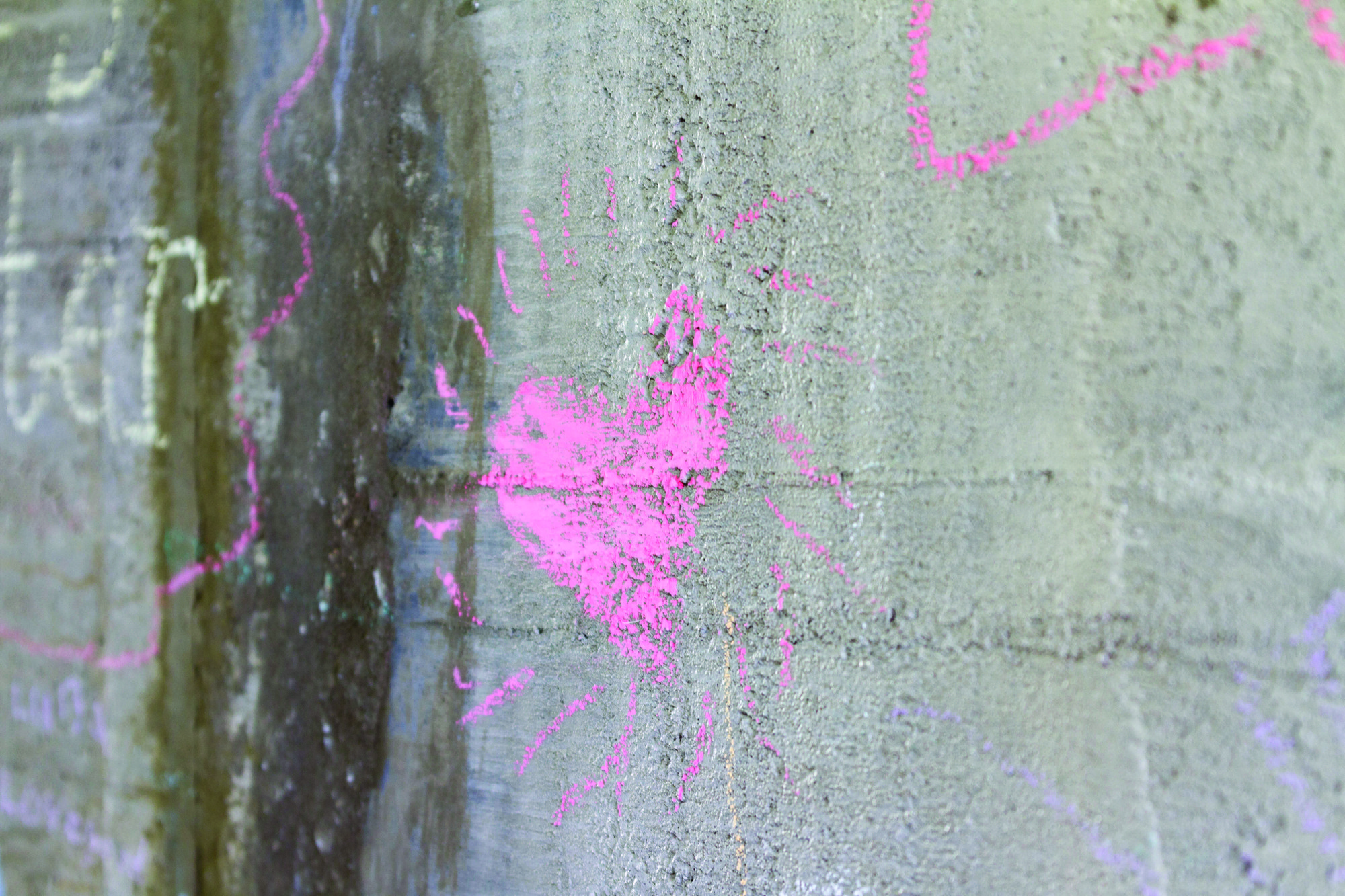Anti-abortion rights chalk removal sparks free speech conversation
Students were asked to remove a chalked anti-abortion rights message located on a walkway intersection directly to the southwest of Biology and Natural Resources building on Sept. 23.
According to a student involved, choosing to go only by the name “Melissa,” the group drew 897 hearts to represent the number of abortions Planned Parenthood provides, on average, in one day.
The Utah Statesman tried to reach Melissa, but she is not commenting to the press at this time. A full account of the incident is available online through Students for Life of America, or SFLA, a national anti-abortion rights organization. The chalking was done as part of a National Pro-life Chalk Day that SFLA promotes.
Melissa and her friends were finishing up their message when they were approached by a university police officer and asked if they had permission to chalk there.
“We told him we didn’t know we needed permission, and he informed us that it was classified as Vandalism and asked for our IDs. He told us that chalk isn’t allowed, that it is a big problem and that people would be offended by our message,” Melissa said in the Students for Life of America article.
At the request of the police, the group of students began cleaning up their work with a combination of brooms and water.
Many USU students have seen chalk on campus featuring announcements, art, reminders and even recent political messages in support of Bernie Sanders.
“He told me that no chalk is allowed without permission, but then continued to tell me how offended pro-abortionists would get if it was on campus, and how it would get posted online and become a big deal,” Melissa said in the article.
Melissa and her friends walked away from the experience feeling that, even if they were breaking a rule, it may have been selectively enforced on them because of their message.
Utah State Executive Director of Public Relations and Marketing Tim Vitale said that this wasn’t the case.
“[The police] said they don’t often come across people chalking because they do it at night,” he said. “But if they do run into them the police said they stop everybody. They are consistent.”
Vitale has issued on official apology on behalf of the university since the incident.
“They felt like their message was being targeted rather than the potential graffiti legal end of things being targeted, and that’s why I think an apology was necessary,” Vitale said.
Vitale said the incident has revealed the need for change in university guidelines governing free speech, citing “institutional fogginess” as part of the problem.
This fogginess comes from the fact that there are three sets of rules could potentially apply to this situation.
State law, the first to be considered, classifies graffiti as “any form of unauthorized printing, writing, spraying, scratching, affixing, etching or inscribing on the property of another regardless of the content or the nature of the material used in the commission of the act.”
The sign standards from USU facilities states that “all non-university sponsored programs, events, and activities are not allowed to place temporary signs or distribute handbills on campus,” and specifically includes chalk under its list of temporary signs.
However, according to the Student Code, students are only encouraged to file a written request with the vice president of student services.
Vitale recognizes the problem and says that the university is hard at work to make things more clear, and has already held a meeting to discuss a course of action.
“Fix this, quickly,” he said. “Make it clear that we strongly defend first amendment rights, and get these things consistent.”
Students for Life of America stated in the article they published that they are in contact with their attorneys to examine their next steps. Tim Vitale said the university has received no contact from SFLA or any of their representatives.
When asked for a statement, Students for Life of America told the Statesman, “SFLA is still in touch with our attorneys, but we are happy to see that the school has apologized to the students.”
Until the rules are clarified, Vitale said students interested in making a demonstration on campus go to the vice president of student service and file a written request to make sure things go smoothly.
“This property is still owned by the university. If they choose to tell you not to do something, then they have that right,” said Alex Nissim, a sophomore in history and international studies.
Jacob Olsen, an attorney and professor at USU, said free speech is a complicated issue. Politically oriented speech is generally very highly protected, Olsen said, but reasonable time, place and manner restrictions on free speech are generally acceptable if the state can demonstrate a need for them.
“Growing up in this country, we’ve all heard, or perhaps even said it ourselves, ‘It’s a free country, I can say what I want,'” he said. “First Amendment freedom of speech is not so simple. It does not mean you can say whatever you want, wherever you want.”
— @colehammondUSU

